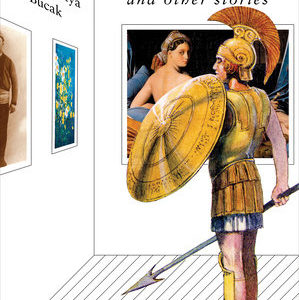Lit Hub’s Fall 2019 Nonfiction Preview: Essay Collections
Rebecca Solnit, Elena Ferrante, and Other Fall Favorites
This week we’ll be previewing the most anticipated nonfiction titles coming out this fall, covering politics, history, biography, science, tech, social science, and more. We begin today with essays, and you can find memoir over here.
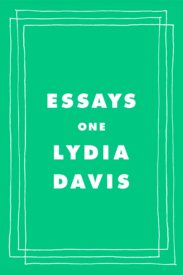
Lydia Davis, Essays One: Reading and Writing
FSG, Nov. 12
With her witty, idiosyncratic prose and razor-sharp mind, Lydia Davis reanimated narratives of the mundane and taught a whole generation of writers about style and prose-writing in the short form. Spanning decades of her career in writing and translation, this collection offers an overview of the author’s years of contributions to literature through lectures, essays, commentaries on her favorite short stories, earliest influences, and more.
 (Cover not yet available.)
(Cover not yet available.)
Darryl Pinckney, Busted in New York and Other Essays
FSG, Nov. 12
“White supremacy isn’t back,” Pinckney tells us in this book of 25 essays about black intellectual, social, and personal history in America and beyond, “it never went away.” Pinckney’s essays tackle Ferguson, James Baldwin, Kara Walker, Moonlight, the Black Panther Party and more with sharp intelligence and a keen historical sensibility.
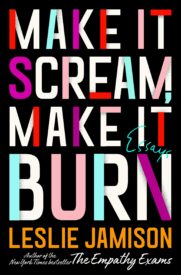
Leslie Jamison, Make It Scream, Make It Burn: Essays
Little, Brown and Company, Sept. 24
Leslie Jamison is a writer of supreme eloquence and intelligence who deftly combines journalistic, critical and memoiristic approaches to produce essays that linger long in the memory. Her eclectic latest includes examinations of the museum of broken relationships, the community of Second Life players, and the loneliest whale in the world, alongside personal reckonings with marriage, maternity, and becoming a stepmother.
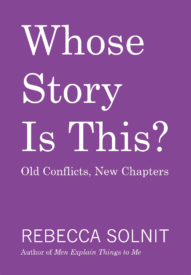
Rebecca Solnit, Whose Story Is This?
Haymarket, Sept. 3
In her writings on patriarchy and many of its notable culprits—from Trump to Epstein and then some—Rebecca Solnit has articulated, in her characteristically precise and powerful voice, the fear, anger, and hope that many American women have felt at a time of seismic social change. Elsewhere, Solnit has criticized the “Great Man Theory of History,” and her newest collection of essays (many of which first appeared at this site) continues in this vein, asking who it is that will emerge with genuine power in the aftermath of the current culture wars.
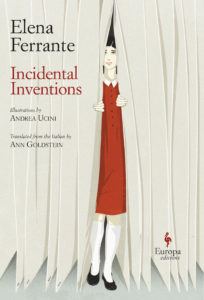
Elena Ferrante, trans. by Ann Goldstein, Incidental Inventions
Europa Editions, Nov. 19
In this volume, Europa collects a set of columns that Elena Ferrante published in The Guardian over the course of a year that “scared and inspired” her, she wrote at its conclusion. Here in one place are her thoughts on climate change, pop culture, and a host of other topics.
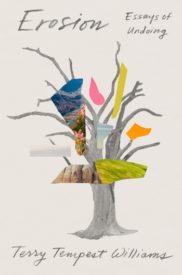
Terry Tempest Williams, Erosion: Essays of Undoing
Sarah Crichton Books, Oct. 8
With Erosion: Essays of Undoing, Terry Tempest Williams again turns her attention to the American West, confronting the imprint that human desire, political mismanagement, and extractive industry has made on a landscape that long predates us and will exist after we are gone. With a vivid attentiveness to the details of the land around her, details that seem all the more urgently important for the threats they face, she examines erosion—both of the physical landscape and the mental attitudes that have driven its destruction—as a process that can be damaging, restorative, or a mix of the two.
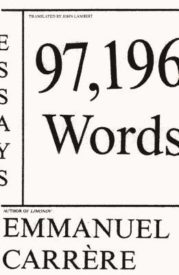
Emmanuel Carrère, trans. John Lambert, 97,196 Words: Essays
FSG, Nov. 5
Emmanuel Carrère’s ability to navigate deftly between wildly disparate topics is on full display with this collection, which offers essays written between 1990 and 2016. Carrère’s thoughts on French president Emmanuel Macron, dating, Davos, and other issues all receive space here, in a way that welcomes new readers and those that have followed his previous work.
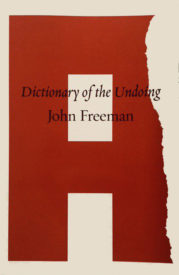
John Freeman, Dictionary of the Undoing
MCD x FSG Originals, Nov. 12
In the wake of the 2016 election, John Freeman (an editor at this website) felt that words, somehow, had shifted, that it was harder, after Trump’s election win, for our language to fully describe the political and social landscape around us. What good were words or writing in the face of injustice? But in the face of Kellyanne Conway’s “alternative facts” and the president’s repeated, evidence-free claims that things were “fake news”—words seemingly losing their meaning altogether—Freeman decided to defend the value of language. The result was Dictionary of the Undoing, a compendium of the words that Freeman felt were essential today. Freeman’s dictionary is no eschewing of action—if anything, it is a call to further protest—but it is also a passionate defense of the meanings of words and the larger things tied to those words, in a world in which our elected officials all too often suggest just the opposite.
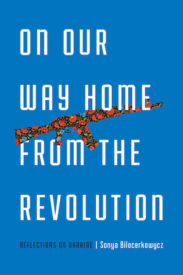
Sonya Bilocerkowycz, On Our Way Home From the Revolution
Mad Creek/Ohio State University Press, September 2019
As a tourist in 2014, Sonya Bilocerkowycz encounters Ukraine at a time of revolution, one when political idealism has reached a fever pitch. But afterward, as revolt turns to all-out war with Russia, Bilocerkowycz finds herself interrogating her view of Ukraine’s political reality and the role of her own family’s story in the mythology of revolution.



















